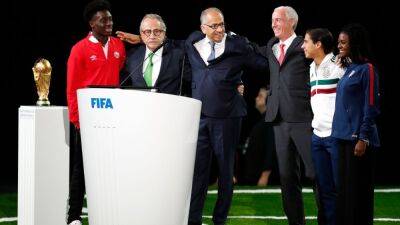World Cup winner delivers safety warning: 'Rugby might not be here in 50 years' time'
Rugby World Cup winner Ben Kay has issued a grim warning for the game as studies into the long-term effects of concussion intensify.
The former England lock was speaking on BT Sport's Rugby Tonight show which was broadcasting a special on brain injuries in the game.
The 46-year-old Kay, who won the World Cup with England in 2003, is one of 50 former elite rugby players, aged between 40 to 59, taking part in PREVENT: RFC, a landmark investigation into whether they are at a greater risk of early signs of dementia.
The former lock labelled concussion as rugby's greatest concern and warned it threatened the future of the sport.
"It is without doubt the biggest concern that rugby faces," Kay said. "If mums and dads don't think our game is as safe as it can be, they won't let their little boys and girls go and start playing. Rugby will start to suffer and potentially might not be here in 50 years' time."
The prevent study is funded by Britain's Alzheimer's Society.
Kay, who played 62 Tests for England between 2001 and 2009, received a clear brain scan despite having some concerning memory issues.
While he feels there are improvements in safeguarding the game, more action is required.
"Rugby does look very different to what it was 10 years ago. Unfortunately, there is nothing we can do to lessen the risk we were exposed to."
Kay adds there needs to be a consensus among coaches about the amount of full-contact load players are exposed to in training.
"If all coaches felt, right, 'That's what everyone can do [in terms of the number of contact sessions]. No other clubs are doing more than us', they'd accept doing less contact training and coaches will get better in other ways," he reasoned.
"As soon as that happens, they'll find other ways





